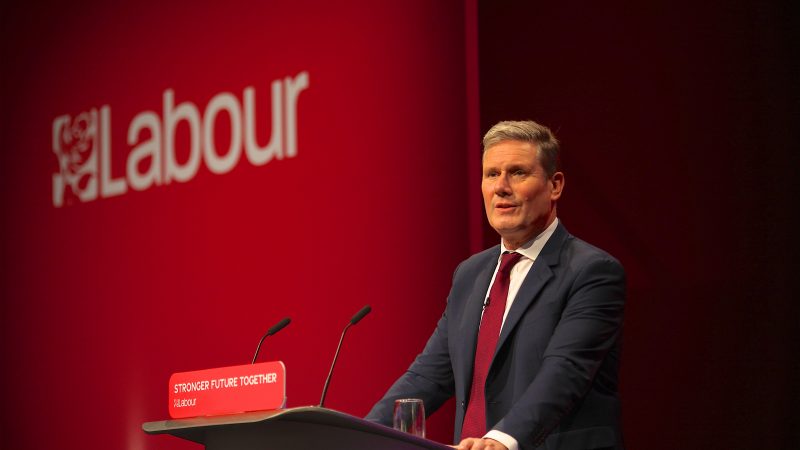
It is a summer of discontent. For more than a decade, things in Britain have been going downhill gradually. Now it feels they are going downhill fast. Earnings are falling steeply in real terms, interest rates and rents are spiralling and pretty much every public service is under more pressure than at any time in living memory.
If Labour wins the next election, Keir Starmer will have to plan for both patient, long-term rebuilding and immediate turnaround. It will take a long time to put things right, but some big steps will be required straight away.
Labour has rightly said it will only make pre-election spending commitments when matched by new sources of revenue in a fully-costed manifesto. But the party also needs to make private and provisional plans for other urgent spending, ready to implement if possible once Rachel Reeves opens the Treasury books.
It is therefore imperative that Labour does not promise to follow the Conservatives’ 2025 public finance plans. On the basis of figures available in March, the IFS says they bake in £18bn of cuts to public services. These are fantasy numbers designed as a trap for Labour, which a re-elected Tory Party would almost certainly ignore. Maybe if the economy is in freefall, they will be a necessity. But the Shadow Chancellor should say the Tory figures are a worst case scenario, not a plan for power.
Labour must have an immediate plan for benefit increases
On living standards and the economy, the sad truth is that the fundamentals will take time to change. Last week, the Fabian Society published proposals to reduce regional inequalities. We called for devolution of economic powers, planning reform and business support – as well as action to increase labour participation covering adult training, public transport and childcare. A closer relationship with the EU would of course also boost all our regions’ long-term prospects.
But none of these things will come fast enough to deal with the sense of crisis. For people in the greatest need, only rapid social security reform will cut it. A future Labour government will need an immediate plan for benefit increases that target destitution, children’s life chances and unaffordable housing costs. Measures such as scrapping the two-child limit should be pencilled in, ready to be unveiled if the public finances make them possible. That is not the same as a manifesto commitment. The party needs to get better at finding words that give it options to take action, if the state of the economy permits.
Rapidly stabilising public services will also be crucial post-election
On public services, the tensions are the same. Years of underspending cannot be turned around quickly. Labour will need plans for long-term reform and investment, emphasising prevention, technology, infrastructure and strong management. These themes all feature in recent Fabian Society plans for a National Care Service.
But public services will simply grind to a halt without immediate stabilisation after the election. The government has bought some time on public sector pay, but after the election, we are likely to need further settlements sufficient to tackle labour shortages. This is not pandering to the unions; it is the bare minimum needed to stop essential services from falling over. In the Fabian National Care Service plan, we call for everyone in adult social care to be paid at least the real living wage, which we think is the only plausible response to the system’s current understaffing.
Economic and social pressures interlock. In the long run, the UK will only generate the money it needs for public services through rising earnings and tax revenues. Demand for healthcare will only be manageable if we can reduce illnesses caused by economic failure. But the economy will only prosper in the future when public services succeed in narrowing gaps in life chances and ensuring that no one leaves school without the skills to succeed.
Immediately, Labour should prioritise public service interventions that can boost the economy quickly. Why hasn’t the government lasered in on cutting NHS waiting lists for people anxious to return to work? Or provided free occupational health services, something the Fabians recently proposed? Done well, this would significantly boost employment and more than pay for itself.
Pre-election nerves must not impede vital short-term spending
The next Labour government will face a difficult balance between unavoidable ‘rescue’ spending and investment in the future. Whenever possible, it should seek to address economic and social goals together and spend in a way that combines patching and reform. The party must spend prudently, within the economic constraints of sensible fiscal rules. But Labour cannot rule out essential short-term spending just because of pre-election nerves.
And, wherever possible, the party should seek out alternatives to public expenditure. The change the country needs will be achieved as much by shifting personal behaviours and business practices as through tax and spend. On issues from the green transition to childhood development, job security to AI and housebuilding to health inequalities, a powerful and purposeful regulatory state – not just public spending – can help rescue Britain from its malaise.
A different version of this article appears in the summer edition of Fabian Review.




More from LabourList
Turning the page? Labour’s recovery in the polls show a path to 2029 victory
Restoration announce recommendations for NEC candidates
‘Factionalism at the top is weakening Labour – and handing a gift to Reform’